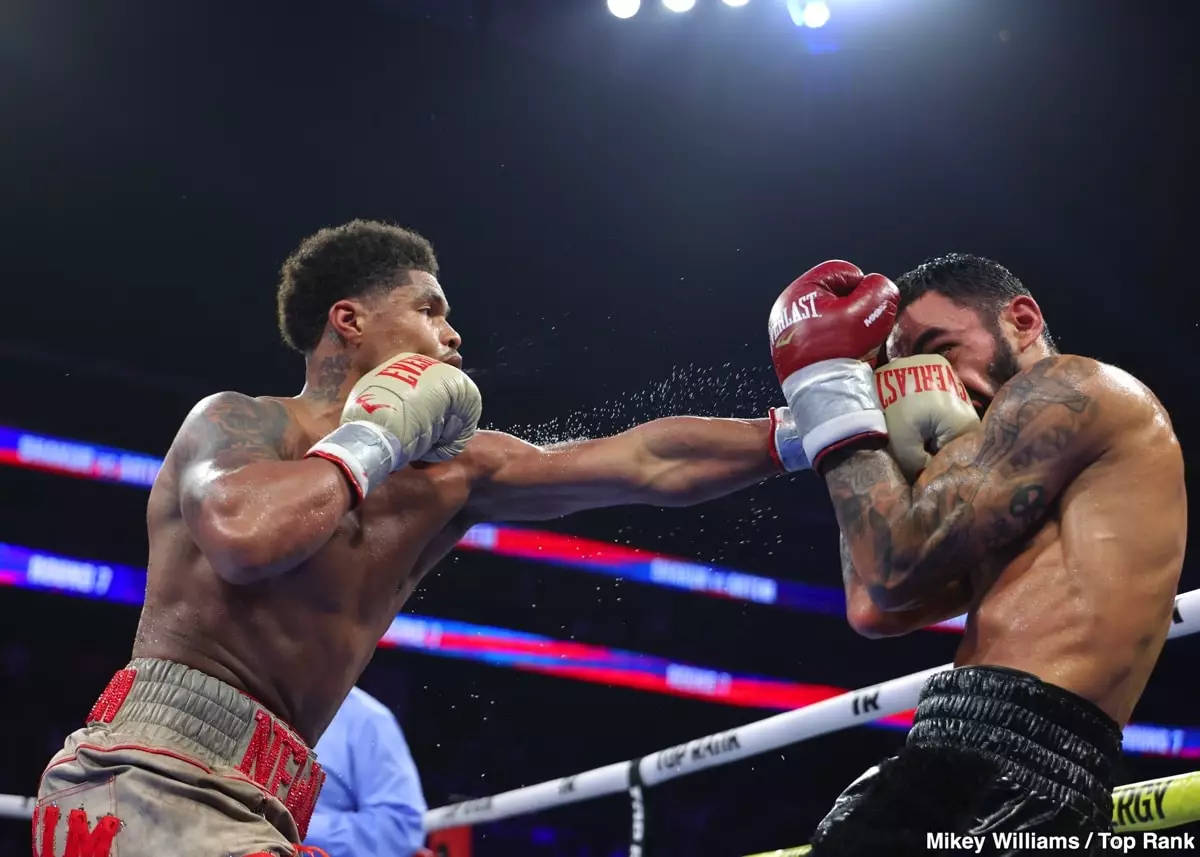As Shakur Stevenson prepares for his title defense against the formidable Floyd Schofield on February 22 in Riyadh, the boxing world is abuzz with anticipation regarding the evolution of his fighting style. Stevenson, the undefeated WBC lightweight champion, has expressed confidence that his “new version” will elevate his performance beyond the established tactics that have defined his career thus far. At 27, Stevenson is at a pivotal moment; he’s approaching an age where many fighters solidify their approach to the sport, leading to the question: can he truly reinvent himself?
A critical factor fueling the discussion around Stevenson’s adaptability is his upcoming bout under the promotion of Turki Alalshikh, a name associated with grand expectations and thrilling matches. The boxing promoter’s success hinges on fighters who deliver action-packed encounters that captivate audiences. Should Stevenson revert to his previous, more cautious approach—often labeled as “hit-and-not-get-hit”—his star could diminish significantly. The recent past has seen mixed reactions to Stevenson’s performances, with fans clamoring for excitement. In a sport relying heavily on public engagement, another subdued showing might lead to a decreased likelihood of lucrative opportunities moving forward.
Stevenson’s last fight showcased a tactical approach that left some fans unimpressed. While he opted to stand firm against Artem Harutyunyan, the opponent’s lack of punching power contrasted against Stevenson’s traditional strategy of evading significant strikes. This raises pivotal concerns regarding whether he can maintain his infused “new version” ethos against a dangerous opponent with proven knockout power like Schofield, who at just 22 years old embodies youthful aggression and explosive potential. To excel in this upcoming bout, Stevenson must balance confidence with caution, demonstrating that he can adapt to different styles while not compromising his defensive prowess.
For Stevenson, maintaining an edge over the competition means actively confronting the perception that he is simply a crafty boxer who avoids risk. Comparisons to other champions, such as Tyson Fury, underscore the importance of personality and crowd engagement both inside and outside the ring. Fury’s unorthodox charisma coupled with his fighting style has rendered him a key player in boxing’s main events. In contrast, if Stevenson continues to engage in less thrilling fights, the promotional opportunities may dwindle, especially in the highly competitive lightweight division.
Shakur Stevenson stands on the brink of a significant transformation as he approaches this critical bout on a prominent platform. With the spotlight shining brightly, the time for evolution is now. Ultimately, the upcoming match against Floyd Schofield will serve as a crucial litmus test for Stevenson’s ability to break free from past perceptions and truly embody his claim of becoming a “new version” of himself that fans and pundits are eager to witness. The future of his career could very well hinge on this fight—will he be the fighter who can thrill audiences while simultaneously fulfilling his champion potential? The boxing world waits with bated breath.

